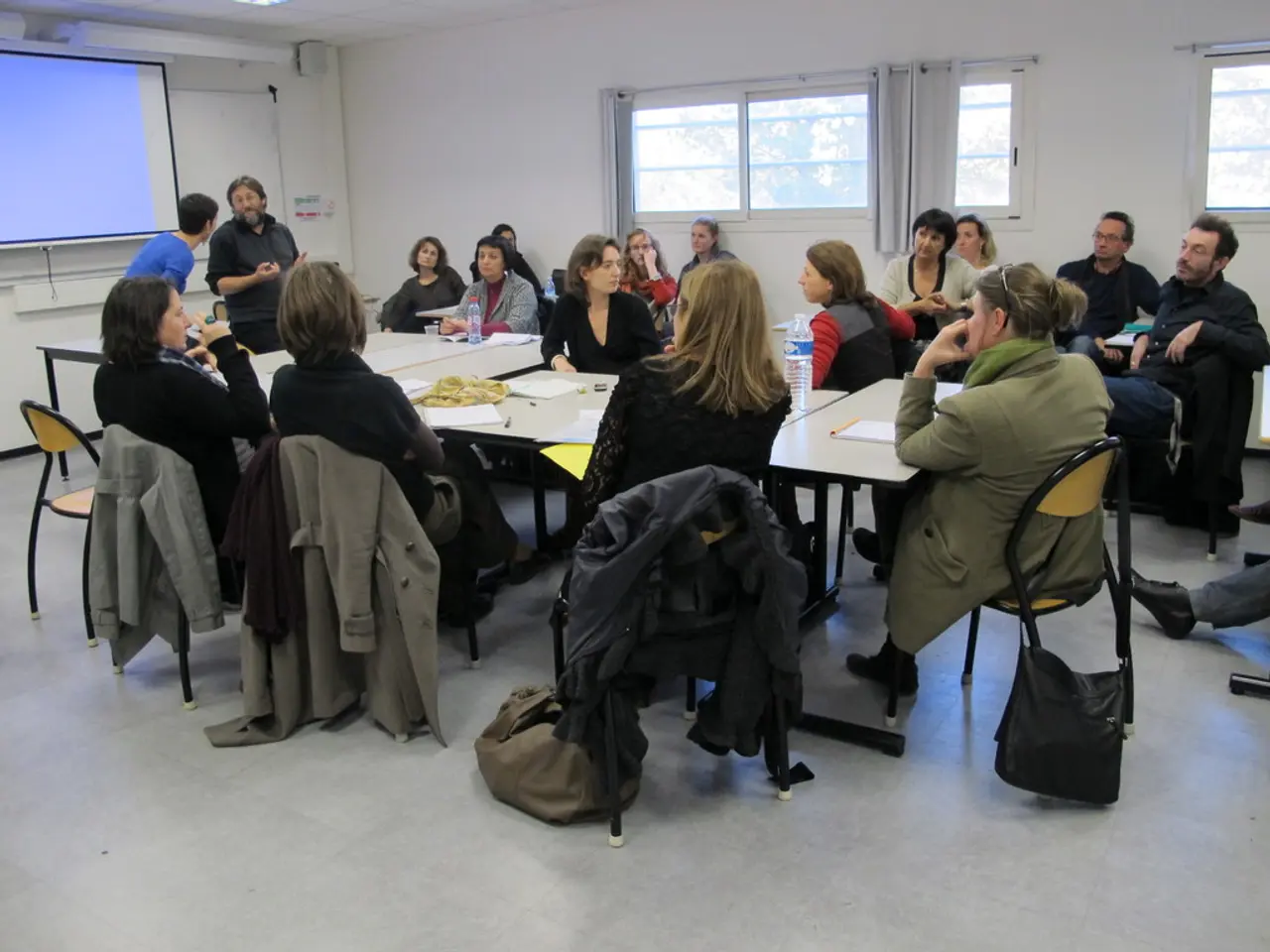"Age Gap Controversy": reasons behind Gen Z's disapproval of significant age differences in romantic relationships
In the realm of modern relationships, Generation Z, often referred to as Zoomers, has a unique perspective on age gaps. This generation tends to view such gaps as potentially exploitative, primarily due to the perceived power imbalance they create between partners.
This perspective is shaped by a variety of factors. For one, Gen Z is influenced by broader cultural shifts that emphasise sexual autonomy, personal agency, and consent, particularly among young women. Many Gen Z women challenge traditional norms that often stigmatise relationships where the woman is older, instead prioritising emotional compatibility and equality over societal approval.
Moreover, Gen Z is more cautious and selective about dating in general. They focus on shared values and long-term compatibility rather than casual or convenience-based relationships. This increased intentionality means they scrutinise potential power imbalances more critically, making them wary of relationships where an age gap might signal unequal footing or exploitation.
Researchers have noted that historically, young partners in age-gap relationships have been labelled as exploiters. However, Generation Z appears to portray them as victims. This shift in perception could be due to the understanding of power imbalances and consent language that today's youth possess.
However, not all members of Gen Z share this cautious view. Some argue that the negative sentiment towards age gaps is an overly-corrected moral panic imposed by the #MeToo movement. Others, like 21-year-old Mona, suspect celebrities like Leonardo DiCaprio, who exclusively date young people, of potential manipulation.
Gigi Engle, a certified sex therapist, expresses concern about the frequent use of the term "grooming" in discussions about age-gap relationships. Engle fears that the term may be losing its meaning, potentially obscuring genuine instances of manipulation and abuse.
Meanwhile, Justin Lehmiller, a research fellow at the Kinsey Institute, suggests that Generation Z publicly and openly expresses disapproval of age-gap relationships. However, he disagrees with the notion that Gen Z views these relationships as inherently exploitative. Instead, he attributes this disapproval to Gen Z's commitment to equity and autonomy.
Amelia, a Generation Z individual, reflects on uncontrolled internet access at a young age, highlighting the potential for adult men to reach out to them. This experience underscores the concerns about power imbalances and potential exploitation in relationships with significant age gaps.
In conclusion, Generation Z's cautious view towards age-gap relationships is rooted in their awareness of potential power imbalances, commitment to equity and autonomy, and a more intentional, values-driven approach to dating. This contrasts with some older generational perceptions and reflects evolving societal conversations around gender, power, and respect in relationships.
- Generation Z's unique perspective on age gaps in relationships is shaped by their focus on family-dynamics, prioritizing emotional compatibility and equality over societal approval in love-and-dating.
- In the realm of education-and-self-development and personal-growth, young Gen Z individuals are more mindful about shared values and long-term compatibility when selecting partners, scrutinizing potential power imbalances more critically.
- The shift in perception towards age-gap relationships among Generation Z could be due to their understanding of power imbalances and consent language, challenging historical labels that have portrayed young partners as exploiters.
- In the discussions about age-gap relationships, members of Gen Z express concerns about power imbalances and potential exploitation, acknowledging the potential risks in relationships with significant age gaps, especially when considering uncontrolled internet access at a young age.




